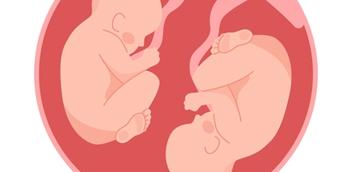
Occasional first-trimester drinking may not affect child's mental health
Light to moderate consumption of alcohol during early pregnancy does not seem to increase the risk for behavioral problems among offspring, according to study findings.
Light to moderate consumption of alcohol during early pregnancy does not seem to increase the risk for behavioral problems among offspring, according to the findings of a recent prospective cohort study conducted in Australia.
Researchers there conducted the Western Australian Pregnancy Cohort (Raine) Study, a prospective, longitudinal study for which they recruited 2,900 women who became pregnant between the years 1989 and 1991. They gathered sociodemographic data at 18 and 34 weeks' gestation and continued to obtain data every 2 to 3 years over the next 14 years on the 2,370 children born to these women.
Researchers found that mothers who were light drinkers (defined as drinking 2 to 6 alcoholic drinks per week) during their first trimesters had children with significantly lower total and internalizing z-scores on the Child Behavior Checklist (CBCL) over 14 years, indicating more positive behavior, than women who did not drink alcohol at all during that time. The children were followed at ages 2, 5, 8, 10, and 14 years, with the CBCL used to measure their behavior.
The researchers admit that the small number of heavy drinkers in the cohort may influence the findings of the study, and they do not advocate high levels of maternal alcohol consumption during pregnancy because of the teratogenic effects on fetal development. Rather, they say that the findings of this study should help to reassure mothers that alcohol consumption at levels consistent with that of nonaddicted women during the first trimester of pregnancy-when many women do not yet even know they are pregnant-were not found to harm the mental health of their offspring in this analysis.
Robinson M, Oddy WH, McLean NJ, et al. Low-moderate prenatal alcohol exposure and risk to child behavioural development: a prospective cohort study. BJOG. 2010;117(9):1139-1150.
Newsletter
Get the latest clinical updates, case studies, and expert commentary in obstetric and gynecologic care. Sign up now to stay informed.









